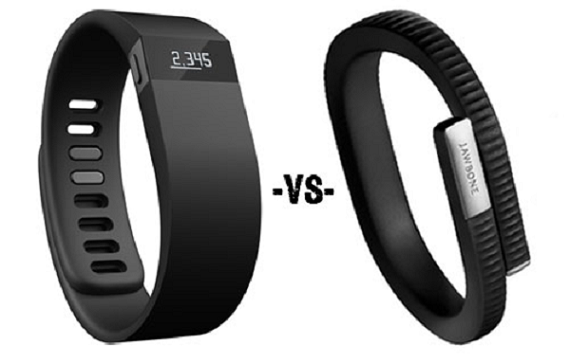
(Updated with comment from Jawbone)
Wearables are having a moment, and Fitbit is taking advantage of that and is on its way to an IPO this year, but first it has something else it has to contend with: a lawsuit.
Rival health tracking manufacturer Jawbone filed with San Francisco’s Superior Court on Wednesday, accusing Fitbit of “clandestine efforts,” which were done to “steal talent, trade secrets, and intellectual property” from Jawbone.
A startling 30% of Jawbone employees were allegedly contacted by Fitbit since the beginning of this year, and got at least five to join the company. It did this, the filing alleged through “lofty promises and expectations” leading up to Fitbit’s recently announced IPO.
When those employees went over to Fitbit, it says, they brought “access to, and key knowledge of, key aspects of Jawbone’s business and the future direction of the market and business.”
Not only that, but they are being accused of downloading documents related to Jawbone’s business plans, technology and products.
All of this was done because, according to Jawbone, Fitbit “lacked the proprietary technology, capabilities and expertise to progress to the next generation” of wearables. So they needed to steal it from Jawbone.
That part of this sounds a tad bit self-serving on Jawbone’s part, and doesn’t really jive with the fact that Fitbit is, currently, the market leader in the space.
In its S-1 filing, Fitbit noted that its “devices were the highest selling fitness activity trackers in the United States in 2014, with a 68% share of the U.S. fitness activity tracker market, by dollars, up from 58% in 2013.”
It also had nine of the top ten selling fitness activity trackers stock keeping units in 2014.
“As the pioneer and leader in the connected health and fitness market, Fitbit has no need to take information from Jawbone or any other company,” Fitbit said in a statement provided to VatorNews.
“Since Fitbit’s start in 2007, our employees have developed and delivered innovative product offerings to empower our customers to lead healthier, more active lives. We are unaware of any confidential or proprietary information of Jawbone in our possession and we intend to vigorously defend against these allegations.”
“Demand for Jawbone’s products are extremely strong, as is the company’s financial health. The company has plenty of cash and an exciting product pipeline. Jawbone and its investors are bullish on its future,” a Jawbone spokesperson told VatorNews.
Founded in 2007, Fitbit currently sells six connected health and fitness trackers. The company is currently profitable. The company saw $745.4 million in revenue in 2014, with net income of $131.8 million, up from $271.1 million in 2013, on a net loss of $51.6 million.
As of the end of March 2015, Fit had sold over 20.8 million devices since its inception. More than half of those devices, 10.9 million, were sold in 2014, up from 4.5 million in 2013 and only 1.3 million in 2012. Frankly, the company seems to be in good shape to be going public right now, but Jawbone is attempting to portray it as inept and out of its depth.
Founded in 1999, Jawbone is the maker of the Jawbone UP health tracker, as well as the Jambox, Bluetooth wireless headsets, and noise-canceling headphones.
In April, the company completed a $300 million funding from BlackRock, giving it around $725 million in total funding and valuing it at roughly $3 billion.
Jawbone could also be prepping for an IPO of its own; investors in the healthtech space named it as the next company that they believe will file this year.
It’s no secret that wearables are about to break out in a big way. In all, 19.6 million wearables were shipped in 2014, a number that will more than double, going up to 45.7 million units, in 2015. By 2019, total shipment volumes are forecast to reach 126.1 million units. That means it will have a five-year compound annual growth rate of 45.1%. Translation: you’re going to start seeing a lot more wearables very soon.
With that on the horizon, yaybe it also shouldn’t be surprising that the situation would lead to increased competition. But its never pleasant when it comes to something like this.
VatorNews also reached out to Jawbone for comment on the lawsuit. We will update this story if we learn more.
(Image source: operation-fit.com)

















